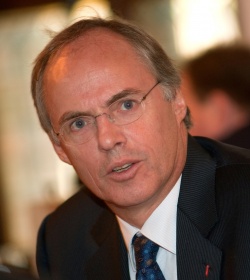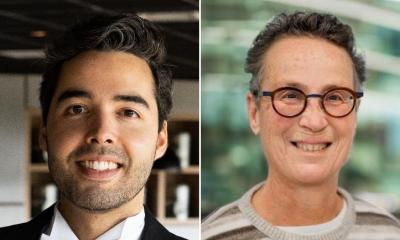Research
New revolutionary culturing technique for liver and pancreas
Researchers at the Hubrecht Institute and the University Medical Center (UMC) Utrecht successfully developed a culturing system for human liver stem cells as well as stem cells from pancreatic cancer. They describe the development of these culturing systems in two articles in this week’s edition of Cell magazine.

Organoids
Until recently it appeared impossible to keep healthy or diseased tissue from patients alive under laboratory conditions, let alone multiply it. However, in 2009, the research group headed by Hans Clevers, professor of molecular genetics at the Hubrecht Institute/UMC Utrecht and president of the Royal Dutch Academy of Arts and Sciences (KNAW), described a revolutionary culturing method that allowed the culturing of mini-guts from single mouse intestine stem cells. These organoids are functional miniature organs that can grow in tissue culture. The same research group now adds a culturing system for liver stem cells and stem cells from pancreatic cancer to their record. In the future, cultured stem cells could conceivably replace donor organs for transplantation. They also offer prospects for research into 'personalized medicine', the prescription of medication specifically geared to individual patients.
Cultured liver stem cells
The technology described in Cell can be used for the long-term replication in the laboratory of minute amounts of tissue harvested from a healthy or diseased liver. Over a period of four months, the equivalent of a full-grown liver can be cultured from a single liver stem cell. All analyses show that this cultured tissue is genetically the same as healthy liver tissue and is very stable as well.
The cultured human ‘mini-livers” have already been successfully transplanted in mice with liver damage. This is the first step towards using this cultured liver tissue to replace donor livers for transplantation. As such, this technology could solve the world-wide shortage of donor livers. Moreover, this technology offers future potential for personalized medicine. Organoids could, for instance, be grown from the tissue of patients suffering from genetic liver diseases, so that drugs can be tested on this patient material first before being administered to the patient themselves. Examples of such diseases are alpha-1 antitrypsin deficiency and Allagile syndrome.
Pancreatic stem cells
Hans Clevers’ research group additionally reports on a technology for the long-term laboratory culturing of healthy and diseased pancreatic stem cells, which was not possible before. To this end, the group worked with one of the world’s leading lights in the field of pancreatic cancer, David Tuveson of Cold Spring Harbor Laboratory in New York.
The study in Cell shows that the sensitivity or resistance of the tumor tissue of individual patients to a wide range of cancer drugs can be determined in the laboratory. As a next step, this method can therefore be used to prescribe individualized therapy for each cancer patient. The technology described was then used to create a ‘Living Biobank’ of cultured pancreatic tumors from a large group of patients with pancreatic cancer. This allows the culturing of organoids from multiple patients, which in turn makes it possible to study larger populations. Established with support from the Dutch Cancer Society/Stand up to Cancer, this biobank is open to cancer researchers and companies worldwide wanting to develop new cancer drugs and treatments.
References
Huch M, Gehart H, Boxtel R van, Hamer K, Blokzijl F, Verstegen MMA, et al. Long-term culture of genome-stable bipotent stem cells from adult human Liver. Cell 2014, doi: 10.1016/j.cell.2014.11.050
Boj SF, Hwang C-I, Baker LA, Chio IIC, Engle DD, Corbo V, et al. Organoid models of human and mouse ductal pancreatic cancer. Cell 2014, doi: 10.1016/j.cell.2014.12.021
Source: Press Release University Medical Center Utrecht
22.01.2015





